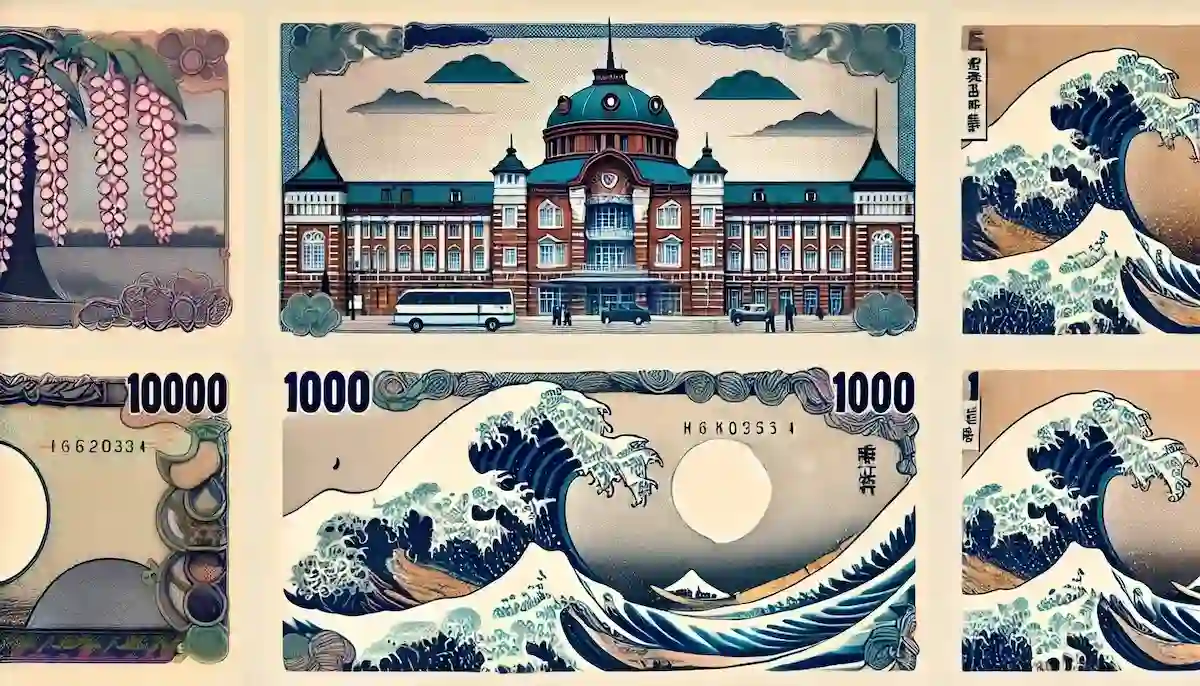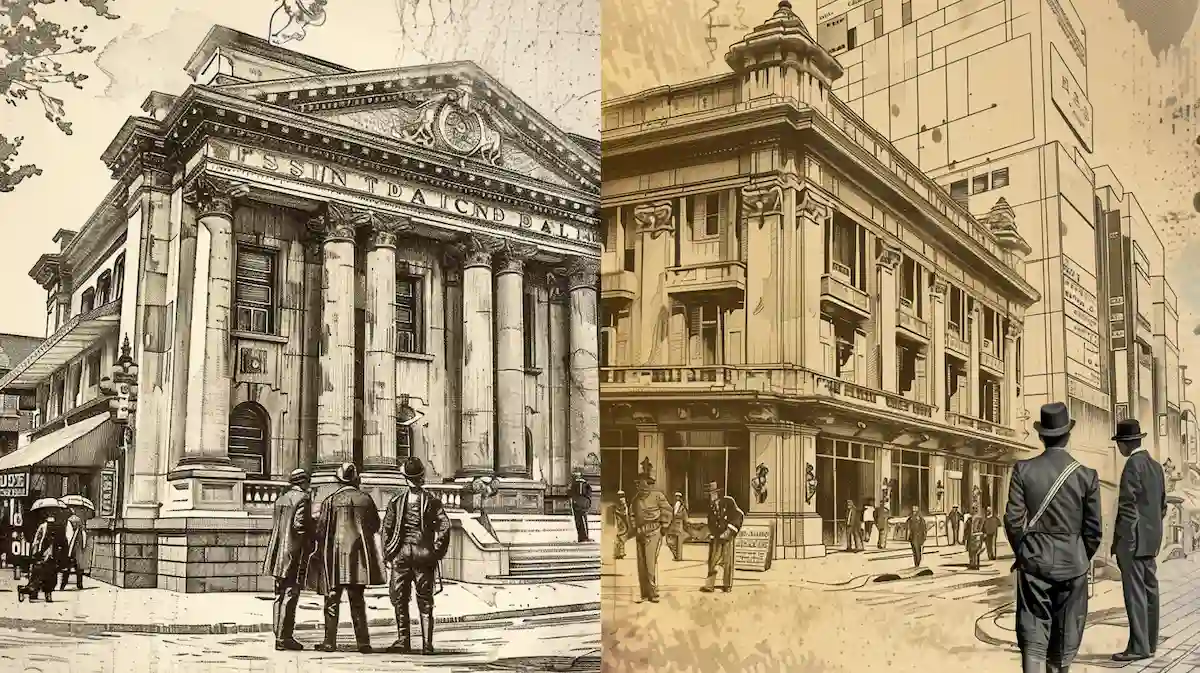津田梅子を英語で説明・紹介するための基本情報と、英会話に役立つ表現をシンプルでわかりやすい英語で紹介します。
英会話ダイアローグ・関連情報・10の質問を通して、津田梅子に関する英語表現を学びます。
英語
英会話ダイアローグを読む前に知っておくと良い前提知識と情報は以下の通りです。
- 生い立ちと留学
- 津田梅子は1864年に生まれた
- 1871年に岩倉使節団の一員として、7歳でアメリカに留学
- アメリカでの生活は、言葉や文化の違いから多くの困難があったが、津田は適応し、英語と西洋文化を学んだ
- 帰国後の活動
- 1882年に日本に帰国した際、アメリカと日本の文化の違いにカルチャーショックを受けた
- その後、ブリンマー大学で教育学と生物学を学ぶために再度アメリカに留学
- 教育者としての功績
- 1900年に女子英学塾(現在の津田塾大学)を設立し、日本での女性の高等教育を推進
- 有名な言葉
- 有名な言葉には、「時代に先んじて生きよ」、「他人の言うことに耳を傾けよ。しかし、最後は自分で判断せよ」、「人生に無駄はない」、「自立し、強くあれ」がある
- 新紙幣
- 2024年、彼女の肖像が5,000円紙幣に採用
2人が津田梅子について話しています。
津田梅子の生涯と業績、留学時の経験、帰国後の活動、健康問題との闘い、印象的な言葉、新紙幣に彼女の肖像が描かれたことなどを話題にしています。
会話 / dialogue

Hey Key, I’ve been really interested in Umeko Tsuda lately. Do you know much about her?

Yes, I do! Umeko Tsuda was a pioneering educator in Japan. She was one of the first Japanese women to study abroad.

That’s fascinating. How did she manage to go abroad in those days?

She went to America in 1871 as part of the Iwakura Mission when she was just seven years old. It was a government mission to learn about Western culture and systems.

I see. It must have been tough for her as a child in a foreign country.

Absolutely. She faced a lot of homesickness and had to adapt to a completely new environment. But she managed to learn English and about Western culture while living with an American host family.

What did she do after returning to Japan?

When she came back in 1882, she experienced culture shock because Japan was very different from America. Later, she went back to America to study more at Bryn Mawr College, focusing on education and biology.

And what did she do with her education?

In 1900, she founded Joshi Eigaku Juku, which is now Tsuda College. It was one of the first higher education institutions for women in Japan. She believed that education was the key to women’s independence and strength.

That’s impressive. Did she face any personal challenges?

Yes, she had chronic health problems throughout her life but continued her work despite them. She was very dedicated to her mission.

I heard she had some famous quotes. Can you tell me some?

Sure! Some of her notable quotes are “Live ahead of your time,” “Listen to others, but make your own decisions,” “Nothing in life is wasted,” and “Be independent, be strong.”

Those are really inspiring. I also heard she was recently featured on a new banknote?

Yes, in 2024, her portrait was featured on the new 5,000 yen banknote. It was a recognition of her significant contributions to women’s education in Japan.

Wow, that’s quite an honor. She really made a lasting impact.

Definitely. Her work and legacy continue to inspire many people today, especially in the field of women’s education.

Thanks for sharing all this, Key. I feel like I understand her much better now.

You’re welcome, Mack. It’s always great to learn about such inspiring figures in history.
関連情報 / related information
「津田梅子」について、理解を深めるための「英語での関連情報」です。
津田梅子

Early Life and Study Abroad
Umeko Tsuda was born in 1864 in Japan. At the young age of seven, she traveled to America in 1871 as part of the Iwakura Mission. This mission aimed to learn about Western culture and systems. Living in a foreign country was challenging for her because of the language and cultural differences. However, she adapted well and learned English and about American culture.
Return to Japan and Further Studies
Umeko returned to Japan in 1882. She experienced culture shock due to the significant differences between Japan and America. She later decided to go back to America to continue her studies. She attended Bryn Mawr College, where she focused on education and biology.
Contributions to Women’s Education
In 1900, Umeko founded Joshi Eigaku Juku, which is now called Tsuda College. This was one of the first higher education institutions for women in Japan. She strongly believed that education was essential for women’s independence and strength. Her work helped many women gain access to higher education.
Personal Challenges and Legacy
Umeko faced many health problems throughout her life, but she remained dedicated to her mission. Some of her famous quotes include “Live ahead of your time” and “Be independent, be strong.” In 2024, her portrait was featured on the new 5,000 yen banknote, honoring her significant contributions to women’s education in Japan.
10の質問 / 10 questions
「津田梅子」について、理解を深めるための「英語での10の質問」です。
1: Who was Umeko Tsuda?
Umeko Tsuda was a pioneering Japanese educator who worked to improve women's education in Japan. She was one of the first Japanese women to study abroad.
2: Why did Umeko Tsuda go to America?
She went to America in 1871 as part of the Iwakura Mission, which was sent by the Japanese government to learn about Western culture and systems.
3: What was Umeko Tsuda's role in education?
Umeko Tsuda founded Joshi Eigaku Juku (now Tsuda College) in 1900, one of the first higher education institutions for women in Japan.
4: What difficulties did Umeko face during her time in America?
Umeko struggled with homesickness and adapting to the new culture and language, but she eventually learned English and Western customs.
5: What did Umeko Tsuda study at Bryn Mawr College?
She studied education and biology at Bryn Mawr College after returning to America for further studies.
6: What was Umeko Tsuda’s belief about education?
She believed that education was essential for women's independence and strength, which is why she dedicated her life to improving women's education in Japan.
7: What health problems did Umeko Tsuda face?
Umeko Tsuda had chronic health problems throughout her life but continued her work in education despite these challenges.
8: What are some of Umeko Tsuda's famous quotes?
Some of her well-known quotes include "Live ahead of your time" and "Be independent, be strong."
9: How is Umeko Tsuda honored in modern Japan?
In 2024, Umeko Tsuda's portrait was featured on the new 5,000 yen banknote, honoring her contributions to women's education.
10: What impact did Umeko Tsuda have on women's education?
Her efforts helped many women in Japan gain access to higher education, empowering them to become more independent and play active roles in society.
和訳付
会話 / dialogue

Hey Key, I’ve been really interested in Umeko Tsuda lately. Do you know much about her?
ねえキー、最近津田梅子にすごく興味があるんだ。彼女のこと、どれくらい知ってる?

Yes, I do! Umeko Tsuda was a pioneering educator in Japan. She was one of the first Japanese women to study abroad.
うん、知ってるよ!津田梅子は日本の先駆的な教育者だったんだ。彼女は海外留学した最初の日本人女性の一人だよ。

That’s fascinating. How did she manage to go abroad in those days?
それはすごいね。あの時代にどうやって海外に行けたの?

She went to America in 1871 as part of the Iwakura Mission when she was just seven years old. It was a government mission to learn about Western culture and systems.
1871年に岩倉使節団の一員として7歳でアメリカに行ったんだ。西洋の文化や制度を学ぶための政府の使節団だったんだよ。

I see. It must have been tough for her as a child in a foreign country.
なるほど。子供の頃に外国で過ごすのは大変だっただろうね。

Absolutely. She faced a lot of homesickness and had to adapt to a completely new environment. But she managed to learn English and about Western culture while living with an American host family.
その通り。彼女はホームシックに苦しんだけど、完全に新しい環境に適応しなければならなかったんだ。でも、アメリカ人のホストファミリーと暮らしながら英語と西洋文化を学んだんだよ。

What did she do after returning to Japan?
日本に帰国した後、彼女は何をしたの?

When she came back in 1882, she experienced culture shock because Japan was very different from America. Later, she went back to America to study more at Bryn Mawr College, focusing on education and biology.
1882年に帰国した時、アメリカとは全然違う日本にカルチャーショックを受けたんだ。その後、ブリンマー大学で教育学と生物学を学ぶために再びアメリカに行ったんだよ。

And what did she do with her education?
それで、その教育をどう活かしたの?

In 1900, she founded Joshi Eigaku Juku, which is now Tsuda College. It was one of the first higher education institutions for women in Japan. She believed that education was the key to women’s independence and strength.
1900年に女子英学塾、現在の津田塾大学を設立したんだ。これは日本で初めての女性向けの高等教育機関の一つだったよ。彼女は教育が女性の自立と強さの鍵だと信じていたんだ。

That’s impressive. Did she face any personal challenges?
それはすごいね。個人的な困難には直面しなかったの?

Yes, she had chronic health problems throughout her life but continued her work despite them. She was very dedicated to her mission.
うん、生涯にわたって慢性的な健康問題に悩まされたけど、それでも仕事を続けたんだ。彼女は自分の使命に非常に献身的だったよ。

I heard she had some famous quotes. Can you tell me some?
彼女には有名な言葉があるって聞いたけど、いくつか教えてくれる?

Sure! Some of her notable quotes are “Live ahead of your time,” “Listen to others, but make your own decisions,” “Nothing in life is wasted,” and “Be independent, be strong.”
もちろん!彼女の有名な言葉には、「時代に先んじて生きよ」、「他人の言うことに耳を傾けよ。しかし、最後は自分で判断せよ」、「人生に無駄はない」、「自立し、強くあれ」があるよ。

Those are really inspiring. I also heard she was recently featured on a new banknote?
それは本当に感動的だね。彼女が最近新しい紙幣に登場したって聞いたけど?

Yes, in 2024, her portrait was featured on the new 5,000 yen banknote. It was a recognition of her significant contributions to women’s education in Japan.
うん、2024年に彼女の肖像が新しい5,000円札に描かれたんだ。これは彼女の女性教育への大きな貢献を認めたものなんだよ。

Wow, that’s quite an honor. She really made a lasting impact.
それはすごい名誉だね。彼女は本当に永続的な影響を与えたんだね。

Definitely. Her work and legacy continue to inspire many people today, especially in the field of women’s education.
間違いないね。彼女の仕事と遺産は、特に女性教育の分野で今日でも多くの人々にインスピレーションを与え続けているよ。

Thanks for sharing all this, Key. I feel like I understand her much better now.
いろいろ教えてくれてありがとう、キー。彼女のことがずっとよく分かった気がするよ。

You’re welcome, Mack. It’s always great to learn about such inspiring figures in history.
どういたしまして、マック。歴史の中のこんなにインスピレーションを与える人物について学ぶのはいつも素晴らしいことだよ。
関連情報 / related information
津田梅子

Early Life and Study Abroad
Umeko Tsuda was born in 1864 in Japan. At the young age of seven, she traveled to America in 1871 as part of the Iwakura Mission. This mission aimed to learn about Western culture and systems. Living in a foreign country was challenging for her because of the language and cultural differences. However, she adapted well and learned English and about American culture.
津田梅子は1864年に日本で生まれました。彼女は7歳という若さで、1871年に岩倉使節団の一員としてアメリカに渡りました。この使節団の目的は、西洋の文化や制度を学ぶことでした。外国での生活は、言語や文化の違いのために彼女にとって困難でした。しかし、彼女はうまく適応し、英語やアメリカの文化について学びました。
Return to Japan and Further Studies
Umeko returned to Japan in 1882. She experienced culture shock due to the significant differences between Japan and America. She later decided to go back to America to continue her studies. She attended Bryn Mawr College, where she focused on education and biology.
梅子は1882年に日本に帰国しました。彼女は日本とアメリカの大きな違いにカルチャーショックを受けました。その後、さらなる学びのために再びアメリカに戻ることを決意しました。彼女はブリンマー大学で教育と生物学を中心に学びました。
Contributions to Women’s Education
In 1900, Umeko founded Joshi Eigaku Juku, which is now called Tsuda College. This was one of the first higher education institutions for women in Japan. She strongly believed that education was essential for women’s independence and strength. Her work helped many women gain access to higher education.
1900年、梅子は女子英学塾(現在の津田塾大学)を設立しました。これは日本で最初の女性向け高等教育機関の一つでした。彼女は教育が女性の自立と強さに不可欠であると強く信じていました。彼女の仕事は多くの女性が高等教育を受けられるようにしました。
Personal Challenges and Legacy
Umeko faced many health problems throughout her life, but she remained dedicated to her mission. Some of her famous quotes include “Live ahead of your time” and “Be independent, be strong.” In 2024, her portrait was featured on the new 5,000 yen banknote, honoring her significant contributions to women’s education in Japan.
梅子は生涯を通じて多くの健康問題に直面しましたが、それでも彼女の使命に専念し続けました。彼女の有名な言葉には「時代に先んじて生きよ」や「自立し、強くあれ」などがあります。2024年には、彼女の肖像が新しい5,000円紙幣に描かれ、彼女の日本の女性教育への重要な貢献が称えられました。
10の質問 / 10 questions
1: Who was Umeko Tsuda?
津田梅子とは誰ですか?
Umeko Tsuda was a pioneering Japanese educator who worked to improve women's education in Japan. She was one of the first Japanese women to study abroad.
津田梅子は、日本で女性教育を改善するために働いた先駆的な教育者です。彼女は、海外留学した最初の日本人女性の一人でした。
2: Why did Umeko Tsuda go to America?
なぜ津田梅子はアメリカに行ったのですか?
She went to America in 1871 as part of the Iwakura Mission, which was sent by the Japanese government to learn about Western culture and systems.
彼女は1871年、岩倉使節団の一員としてアメリカに行きました。この使節団は、日本政府が西洋の文化や制度を学ぶために派遣したものです。
3: What was Umeko Tsuda's role in education?
津田梅子は教育においてどのような役割を果たしましたか?
Umeko Tsuda founded Joshi Eigaku Juku (now Tsuda College) in 1900, one of the first higher education institutions for women in Japan.
津田梅子は1900年に女子英学塾(現在の津田塾大学)を設立しました。これは日本で最初の女性向け高等教育機関の一つでした。
4: What difficulties did Umeko face during her time in America?
津田梅子はアメリカでどのような困難に直面しましたか?
Umeko struggled with homesickness and adapting to the new culture and language, but she eventually learned English and Western customs.
梅子はホームシックや新しい文化や言語に適応するのに苦労しましたが、最終的には英語と西洋の習慣を学びました。
5: What did Umeko Tsuda study at Bryn Mawr College?
津田梅子はブリンマー大学で何を学びましたか?
She studied education and biology at Bryn Mawr College after returning to America for further studies.
彼女は再びアメリカに渡り、ブリンマー大学で教育学と生物学を学びました。
6: What was Umeko Tsuda’s belief about education?
津田梅子は教育についてどのように考えていましたか?
She believed that education was essential for women's independence and strength, which is why she dedicated her life to improving women's education in Japan.
彼女は、教育が女性の自立と強さに不可欠であると信じており、そのために彼女の人生を日本の女性教育の改善に捧げました。
7: What health problems did Umeko Tsuda face?
津田梅子はどのような健康問題に直面しましたか?
Umeko Tsuda had chronic health problems throughout her life but continued her work in education despite these challenges.
津田梅子は生涯を通じて慢性的な健康問題に悩まされましたが、それにもかかわらず教育の仕事を続けました。
8: What are some of Umeko Tsuda's famous quotes?
津田梅子の有名な言葉にはどんなものがありますか?
Some of her well-known quotes include "Live ahead of your time" and "Be independent, be strong."
彼女の有名な言葉には「時代に先んじて生きよ」と「自立し、強くあれ」があります。
9: How is Umeko Tsuda honored in modern Japan?
現代の日本では津田梅子はどのように称えられていますか?
In 2024, Umeko Tsuda's portrait was featured on the new 5,000 yen banknote, honoring her contributions to women's education.
2024年には、彼女の肖像が新しい5,000円紙幣に採用され、女性教育への貢献が称えられました。
10: What impact did Umeko Tsuda have on women's education?
津田梅子は女性教育にどのような影響を与えましたか?
Her efforts helped many women in Japan gain access to higher education, empowering them to become more independent and play active roles in society.
彼女の努力により、多くの日本の女性が高等教育を受け、自立し、社会で積極的な役割を果たすことができるようになりました。
words & phrases
英会話ダイアローグと関連情報に出てきた単語・フレーズです(例文は各3つ)。

mission: 名詞
意味: 使命、任務。A task or job that someone is given to do, especially a task that is seen as very important.
(岩倉使節団のように特定の目的を持って派遣された使節団を指す)
例文:
- The astronauts were on a mission to explore Mars.
「宇宙飛行士たちは火星探査の任務に就いていました。」 - Our mission is to provide clean drinking water to all.
「私たちの使命は、全ての人に清潔な飲み水を提供することです。」 - The team completed their mission successfully.
「チームは任務を無事に完了しました。」
pioneering: 形容詞
意味: 先駆的な、開拓者の。Introducing new and innovative methods or ideas.
(津田梅子が女性教育の分野で先駆的な役割を果たしたことを指す)
例文:
- She did pioneering work in the field of genetics.
「彼女は遺伝学の分野で先駆的な仕事をしました。」 - His pioneering efforts changed the way we use technology.
「彼の先駆的な努力が私たちの技術の使い方を変えました。」 - The scientist received an award for his pioneering research.
「その科学者は先駆的な研究で賞を受け取りました。」
chronic: 形容詞
意味: 慢性的な、長期にわたる。Continuing for a long time or recurring frequently.
(津田梅子が生涯を通じて慢性的な健康問題に悩まされたことを指す)
例文:
- She suffers from chronic back pain.
「彼女は慢性的な腰痛に悩んでいます。」 - Chronic stress can lead to serious health problems.
「慢性的なストレスは深刻な健康問題を引き起こすことがあります。」 - The patient has a chronic illness that requires ongoing treatment.
「その患者は継続的な治療が必要な慢性疾患を抱えています。」
quotes: 名詞
意味: 名言、引用。Words or sentences that are repeated by someone else, often from a famous person or a text.
(津田梅子の有名な言葉を指す)
例文:
- He included several quotes from famous philosophers in his speech.
「彼は演説に有名な哲学者のいくつかの引用を含めました。」 - The book is filled with inspirational quotes.
「その本は感動的な名言で満ちています。」 - She always remembers the quotes her grandmother used to say.
「彼女はいつも祖母が言っていた名言を覚えています。」
inspiring: 形容詞
意味: 感動的な、鼓舞する。Giving someone the desire or enthusiasm to do something.
(津田梅子の言葉や行動が人々にインスピレーションを与えることを指す)
例文:
- Her story is truly inspiring.
「彼女の話は本当に感動的です。」 - The teacher gave an inspiring speech to the students.
「先生は生徒たちに感動的なスピーチをしました。」 - The movie was inspiring and left everyone feeling hopeful.
「その映画は感動的で、皆に希望を与えました。」
詳細情報 / Further Info
関連記事(新紙幣、渋沢栄一、北里柴三郎)



